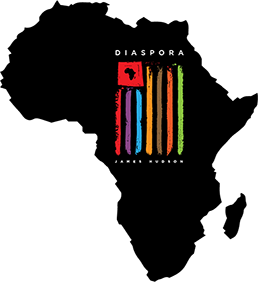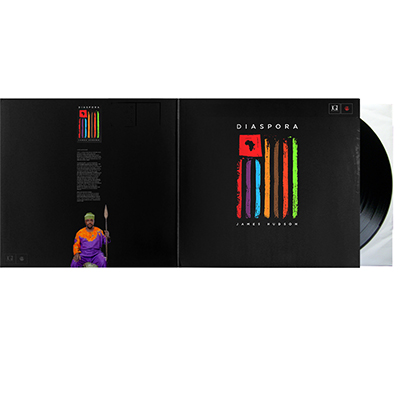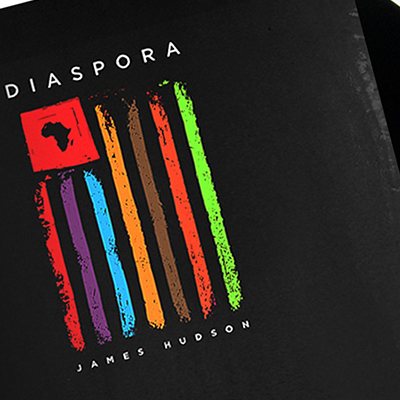


Definition: The term Diaspora comes from an ancient Greek word meaning the scattering about of people from their original homeland, in this case Africa, to places across the globe, spreading and expanding their culture as they go. A more general definition is the dispersion of ANY people from their original homeland.
Goal: To raise awareness through music to educate expressly our young people that may or may not know the profound affect slavery had on our culture. Especially, since it is not being taught in our schools and is being glazed over in discussions. The intent is also to refresh those elders that may have awareness, have let the experience of our ancestors grow obsolete, or want to connect with heritage through music. Bondage of mind released through music or song. Musically freed – through instruments, voices, words, lyrics, song. Escape through thoughts and actions.
Our culture was spread all over the globe as we were being diasporized - herded, taken against our will and dropped off in places like Senegal, Brazil, Mexico, Cuba, Haiti, Jamaica, etc.
The Bible refers to the Diaspora of Jews exiled from Israel by the Babylonians. History speaks of African people that endured the Diaspora and were taken to a place called Gorée, (root word gore; blood that has been shed, especially as a result of violence) that is one of Africa's most famous memorials to the slave trade infamously known as The House of Slaves – The Door of No Return on Senegal's Gorée Island. A place of captivity and physical bondage; a place of no escape. The official story is that millions of African slaves passed through the House's Door of No Return, which faces West across the Atlantic, some of them believing just that, ‘there would be no return’. They traveled on ships and throughout the journey in spite of the horrific conditions, uncleanliness, stench and mental and physical abuse they had an unbreakable connection. They had a communication of their own that they shared amongst themselves; it was not just their native tongue, it was the language of song. They sang for comfort, peace, hope, and strength, for their very sanity; and that food of the spirit that penetrates to the very soul was instrumental in their survival.
“The Diaspora consists of the worldwide collection of communities from Africa’s people predominantly in the Americas. It is a term used to refer to the descendants of the west and central Africans who were enslaved and shipped to American via the Atlantic slave trade between the 16th and 19th centuries”(Wikipedia). The largest populations being in Brazil, the United States and Haiti. The total population was approximately 140 million with Brazil having 55, 900,000; the US 46,350467, Haiti having 10,113,378 and the Dominican Republic with 1,138,471. Other countries like France, Venezuela, Jamaica, United Kingdom, Mexico, Peru, Canada, Cuba, Italy, Puerto Rico, Germany Spain, Ecuador, Trinidad, Barbados, Guyana, Suriname and Grenada are others with sizable numbers of Africans that were taken from their homelands on ships and planted there. Of course, people were from different tribes and different nations and spoke various tribal languages. They had to learn to communicate with one another on these various journeys.
The phrase “African Diaspora” was coined during the 1990s.The term originated with the Jewish Diaspora and then became more broadly applied to other populations (Wikipedia)
Pushed through the “door of no return”, millions of Africans were shipped from places like this whitewashed fort in Elmina, Ghana, to a life of slavery in Brazil, the Caribbean and America. A band of light from that same door now cuts through the air in a small, dank room crowded with about 30 tourists. “We are very lucky. Today we can go back out of this room the way we came,” says Robert Kugbey, their softly spoken guide. As Britain marks the bicentenary of its abolition of the slave trade on March 25, Ghanaians are still coming to terms with slavery’s impact on their country’s development and the role Africans played in the capture and sale of fellow Africans.